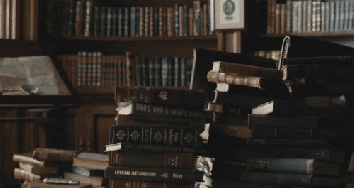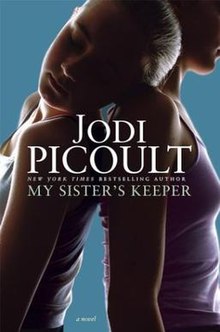This post contains affiliate links. This means when you follow a link and make a purchase, I make a small commission at no additional cost to you, the customer.

Follow Me Elsewhere: Facebook \ Twitter \ Goodreads \ Instagram
Buy Me A Coffee?

Children of Blood and Bone is a 2018 young adult
fantasy novel by Tomi Adeyemi. It was published by Henry Holt Books for Young Readers and was the
author’s debut novel. It is the first book in the Legacy of Orisha series. The
novel debuted at number one on The New York Times best-seller list. The film rights were sold to Fox 2000 prior to the book's publication. Children of Blood and Bone can be purchased here from Bookshop.org
The novel takes place in the land of Orisha, which is home to two distinct groups of people: diviners, who have the potential to become the magical maji, and the non-magical kosidan. Eleven years prior to the start of the story, Orisha’s king, Saran, discovered a way to render the maji powerless and ordered the slaughter of many defenseless diviners, including the mother of Zelie Adebola. Since that time, diviners have been severely oppressed and without hope. While in the capital, Zelie, a diviner, and her brother Tzain encounter a rogue princess, Amari, who has discovered a way to give magic back to the maji. They are pursued on their journey by the crown prince Inan, who is determined to eradicate magic for good.
As with any novel, there are many memorable characters, but I don't have time to talk about all of them, otherwise this review would be two or three times the length it currently is. Instead, I will focus on the five characters most crucial to the plot. Zelie is the heroine of the story, a maji with the ability to call forth the spirits of the dead, referred to in-universe as a Reaper. Having been ostracized and oppressed for most of her life because she's different from most of those around her, she welcomes the chance to resort magic to Orisha and give her people a way to protect themselves and fight back against their oppressors. I liked Zelie and her arc as a character. She's uncertain of herself, she struggles with her abilities and several times, wonders if she's able to fulfill the task that others say she's desperate for. Tzain is Zelie’s brother, who is one of the kosidan. He comes with her on her journey at their father’s request and serves as a voice of reason. Zelie can be brash and impulsive and he is usually the one who convinces her to find better solutions to a given problem. Amari is the princess of Orisha, who's escape from the palace with a magical artifact sets the story into motion. While she has been raised her whole life to be scared and wary of the diviners, she clearly doesn't believe that they're the monsters others say that they are. She's a compassionate person, which many others see as a weakness, but her compassion is what drives her to join Zelie on her quest and try to make things better for the diviners. Amari begins the novel appearing to be very weak-willed and underestimated, but through the journey she takes with the Adebola siblings, she comes into her own and learns how to be comfortable with who she is. Inan is Zelie’s older brother and the heir to the throne. He's a very difficult character to talk about without spoiling a few things in the book, but let's just say he's an antagonist mostly just by circumstance. He's pursuing Zelie, Tzain and Amari on his father's orders. He wants to eradicate all magic because he's been told his whole life that if magic is allowed to exist, it will be the end of the kingdom and his family. It isn't until very late in the story that he is given a reason to want the things that he wants. I'll be honest, I spent a decent amount of the book annoyed at Inan because he was acting against his own self interests and, had he gotten what he wanted, he would suffer as a result. Lastly, there is the main antagonist of the story, King Saran. He makes very few appearances in the story, at the very beginning and in the climax. Other than his few appearances, most of his char activation comes from what's said about him by other characters. There isn't really much depth to Saran, no nuance to his goals. He hates the diviners, he hated the maji and wants to completely eradicate them altogether. He's a very simple villain and there's no attempt made to lessen how evil he comes off as. These five characters drive most of the plot and the dynamics between them created an engaging story.
One of the aspects of this novel that I liked the most was the sources of inspiration the author drew from. While some of the sources she used are standard in fantasy, such as Harry Potter and An Ember in the Ashes, it was the inspiration derived from West African mythology and Yoruba culture that made this story and this world unique. It made the story refreshing. This was the first fantasy novel I read that had taken inspiration from West African mythology, or really any mythology that wasn't European. Adeyemi’s novel brings a new perspective and new ideas to the fantasy genre, which is never a bad thing. Fantasy, as with any genre, needs a wider diversity of storytellers.
This book delves into a number of complex themes, some of which I haven't read in fantasy before. One of the most obvious ones is its exploration of race. The maji are darker skinned than the kosidan. Given that the kosidan have enslaved parts of the maji population, it would be difficult to miss the message regarding how race and class can be used to divide a nation. Another theme regards the connection between power and brutality. By virtue of simply being the king, Saran already has power, but that's not enough for him. He feels the need to oppress and enslave the maji because he fears if they aren't oppressed, he and the other kosidan will lose control of the nation. Another recurring theme is characters’ responses to oppression. Zelie, as a result of watching her mother die and living every day in fear for her own life, is determined to resist and overthrow the current order that oppresses her. Another maji character doesn't want to overthrow the system, but use the eventual return of magic to unite the two groups and create a more peaceful country. Lesser themes include identity and the struggles with transitioning from adolescence to adulthood.
I don't have very much to say about the plot itself or the pacing of the story. I normally only talk about those things when I feel there's an issue with how the story unfolds or the speed at which it unfolds. The plot is solid, the elements that invoke foreshadowing do it deftly and it was easy to follow. The pacing was perfect, with scenes that needed to feel a little longer doing exactly that, while other, shorter scenes were given enough length without feeling rushed. The conclusion was amazing. I loved Adeyemi’s writing style itself and she's clearly a talented storyteller.
While I was a fan of the book as a whole, there is one aspect I didn't like. I wasn't a big fan of the romance between Zelie and Inan. The romance was the one aspect of the story that felt a little rushed. It felt a lot like “insta-love” in my opinion. I could see where it can be seen as following the “enemies to lovers” trope, but I don't think it really works here. Zelie develops feelings for someone who, at the beginning of the book, tries to kill her and does a number of horrible things to people she cares about. It felt weird and contrived to me, so I find myself skimming through their romantic scenes in an effort to return to the parts of the story I did like. I might be the only one who didn't like this romance, but it really just didn't sit right with me.
Children of Blood and Bone is an exceptional story. Tomi Adeyemi is a wonderful writer and she deserves all of the praise this book has gotten. I haven't read the second book in this series, Children of Virtue and Vengeance, but it is definitely on my TBR now. I'd recommend Children of Blood and Bone to any young adult fantasy fans.
Rating: 4.8 stars
Follow Me Elsewhere: Facebook \ Twitter \ Goodreads \ Instagram
Buy Me A Coffee?








